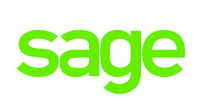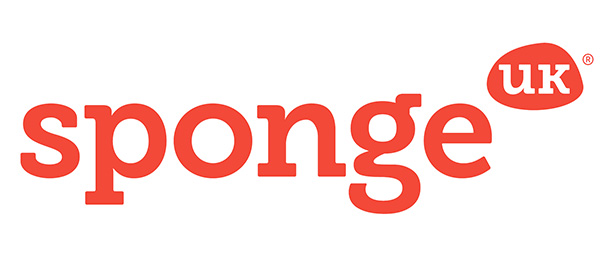TECH NATION 2017 KEY FINDINGS: The UK is the digital capital of Europe- a clear leader when it comes to tech investment, digital skills and collaboration within ecosystems

Foreword by The UK Prime Minister
The Rt Hon Theresa May, MP The Prime Minister
Today more than 1.5 million people are already working within the digital sector, or in digital tech roles across other sectors, while the number of digital tech jobs across the UK has grown at more than twice the rate of non-digital tech sectors. From analysts to web developers to software architects, these pioneers of our digital economy are at the forefront of a great British success story.
Read More
Foreword by Tech City UK Chair & CEO
Eileen Burbidge, Chair Tech City UK
Gerard Grech, CEO Tech City UK
Welcome to Tech Nation 2017, a journey across the UK’s digital landscape that provides a data-rich analysis of Britain’s thriving digital economy and clusters.
In this, our third annual report, we shine the spotlight on the UK’s digital tech economy. We highlight innovation in every corner of the UK, from Bristol to Edinburgh, with over 60 company case studies. London continues to be an international digital powerhouse and its ripples are increasingly spreading throughout the nation.
Read MoreTECH NATION 2017 KEY FINDINGS: The UK is the digital capital of Europe- a clear leader when it comes to tech investment, digital skills and collaboration within ecosystems
To produce this report we analysed more than 1,000 data points, over 2,700 survey responses from digital tech founders and employees and incorporated insights from over 220 community partners across the UK.
The findings are clear – when it comes to digital tech investment, talent and skills and digital collaboration the UK is a leader within Europe and on the international stage.
1) DIGITAL TECH INVESTMENT: In 2016 UK digital tech investment reached £6.8 billion, that’s 50% higher than any other European country
| Country | Digital Tech Investment £bn (2016) |
| UK | 6.8bn |
| France | 2.4bn |
| Germany | 1.4bn |
| Netherlands | 1.3bn |
| Denmark | 1.0bn |
| Italy | 0.8bn |
| Spain | 0.8bn |
Source: Pitchbook, Tech City UK, 2016
2) DIGITAL TECH TALENT: The UK is home to 8 of Europe’s top 20 universities, more than any other European country
| Country | Number of universities in top 20 |
| United Kingdom | 8 |
| Germany | 4 |
| Netherlands | 3 |
| Switzerland | 2 |
| Sweden | 1 |
| Belgium | 1 |
| France | 1 |
Source: Times Higher Education World Varsity Rankings, 2016-17
3) DIGITAL TECH COLLABORATION: London hosted 22,000 Meetups in 2016, that’s three times as many as in Berlin, Amsterdam or Paris
| City | Number of Tech Meetups (2016) |
| London | 21866 |
| Berlin | 7963 |
| Amsterdam | 7915 |
| Paris | 7581 |
| Oslo | 3490 |
| Zurich | 3373 |
| Barcelona | 3286 |
| Madrid | 3225 |
| Munich | 3012 |
Source: Meetup, 2016
4) DIGITAL BUSINESS GROWTH: The turnover of digital tech businesses reached £170 billion, an increase of £30 billion in just five years
| Year | Digital Business growth | Non Digital Business growth |
| 2011 | 100% | 100% |
| 2012 | 103% | 101% |
| 2013 | 112% | 105% |
| 2014 | 119% | 109% |
| 2015 | 128% | 113% |
Source: BSD, Tech City UK, 2015
5) DIGITAL TECH JOBS: There are now 1.64 million digital tech jobs in the UK, and the digital sector is creating jobs 2X faster than the non digital sector
| Year | Number of Digital Tech Jobs (Millions) |
| 2014 | 1.56mm |
| 2015 | 1.64mm |
Source: BSD, Tech City UK, 2015
6) REGIONAL TECH INVESTMENT: In 2016 regional clusters attracted more than £4.5 billion in digital tech investment, reflecting a network of innovative excellence across the nation
| Year | % of Digital Tech Investment in UK clusters (excl London) |
| 2012 | 74% |
| 2013 | 34% |
| 2014 | 44% |
| 2015 | 40% |
| 2016 | 68% |
Source: Pitchbook, Tech City UK, 2016
7) DIGITAL TECH PRODUCTIVITY: The economic contribution of the UK digital tech worker is almost twice as high as the non-digital worker
| Non Digital GVA per worker (£k) | Digital GVA per worker (£k) | |
| 2011 | 44 | 92 |
| 2012 | 45 | 92 |
| 2013 | 46 | 93 |
| 2014 | 49 | 97 |
| 2015 | 50 | 103 |
Source: ONS Annual Business Survey/ONS Business Structures Database
































































